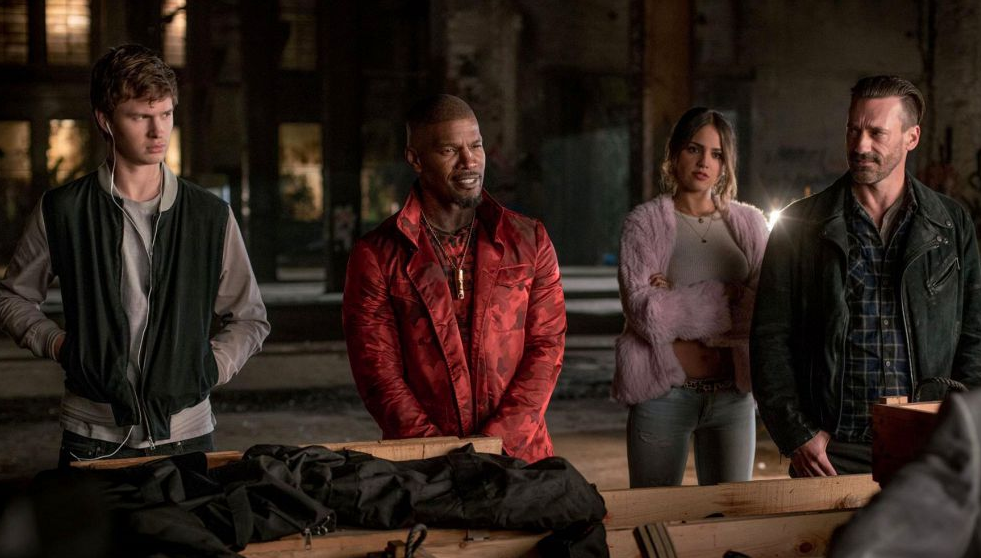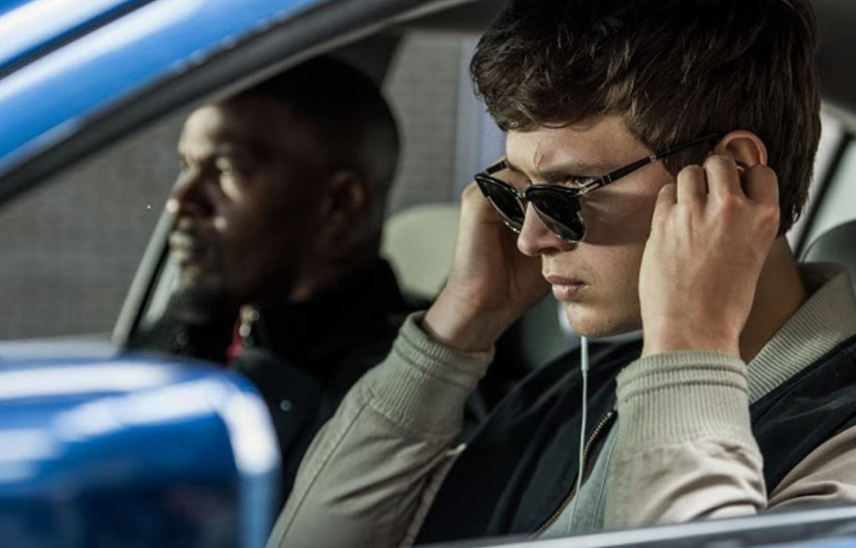Though the story will change depending on who you talk to, there’s a general consensus that Sergio Leone would often play music on his sets to get the cast and crew in an appropriate frame of mind. Claudia Cardinale, who played Jill, ‘the biggest whore in Alameda’, in Once Upon a Time in the West, recalls Leone playing a melody that composer Ennio Morricone had written for her character. According to Cardinale, the music helped her jettison the real world in favour of Leone’s Wild West.
Or there was Fellini, another Italian director who took advantage of the fact that dialogue in most Italian films at the time was constructed in post-production rather than during filming. Fellini played music on set and encouraging his actors to experience it through their performances. In some scenes, Fellini’s characters almost seem to be dancing. In others, they are dancing.

Edgar Wright’s Baby Driver adopts a similar approach in relation to its music. To adopt a term from another music-heavy film, Baby Driver dials it up to eleven. The soundtrack doesn’t influence this film or the characters that inhabit it, the soundtrack is the film and the characters. It’s a soundtrack with a film. Wright, always an energetic filmmaker in the editing department, has cut his character movements, gunshots, dialogue and everything else that occupies Baby Driver in time with his omnipresent soundtrack. The music is the purpose of the film, and not the other way around. That sort of filmmaking is music video filmmaking. Baby Driver is a music video, but it runs for almost two hours.

The overwhelming enthusiasm that Wright’s films to date have been met with by the general public has always bewildered me. I have hitherto been happy to concede that I am simply wrong, the way in which I am wrong about Joy Division’s “Love Won’t Tear Us Apart”. If I’m right and that song is as bad as I think it is then how can so many people experience it to the contrary? With Baby Driver, I am convinced that I am not wrong. This is an objectively bad film that disguises its poor quality with loud music and quick cuts. But there’s isn’t a loud enough volume nor a number of edits high enough to sustain interest when a film doesn’t offer an audience anything to care about beneath the style.
Wright has always engaged in cinematic reflection. There’s the wonderful ending of the penultimate episode of Spaced, that apes the final moments of The Empire Strikes Back. And Wright is best when he playfully engages in genre quirks. Think about Hot Fuzz, which transported Hollywood action film conventions into a small English town. But Baby Driver is cliche that thinks that it is homage. Wright isn’t manipulating his genre, he’s retreading it, with bland, cartoonish characters and an insubstantial plot. Wait for the film to break free of its self-imposed conventions and you’ll be waiting a long time. Wright establishes that expectation but never delivers. If you’re someone who can still care about a criminal with a heart of gold, compelled to partake in one final job before driving off into the sunset, then perhaps you’ll stomach Baby Driver better than I did, but be warned that this is the stalest take on this stalest of narratives in recent memory. Take away the noise and you don’t have much. The noise isn’t even all that interesting.
Complaining that Baby Driver is style over substance is missing the point. As Quentin Tarantino, a man to whom this film owes a debt, once quipped, “you don’t go to a Metallica concert and ask them to turn the volume down.” The whole idea of Baby Driver is style over substance. But that style is neither compelling nor adeptly executed enough to give us reason to overlook the substance and yet the substance is so woeful that the style is all we have. And characters with names ‘Baby’ or ‘Doc’ or ‘Darling’ with quip-laden exploits set to a hip soundtrack is adhering to cliches, not engaging with them creatively. The cooler it wants to be, the less cool it is. Baby Driver doesn’t have a sense of self-awareness. And I’m certain that it’s bad.